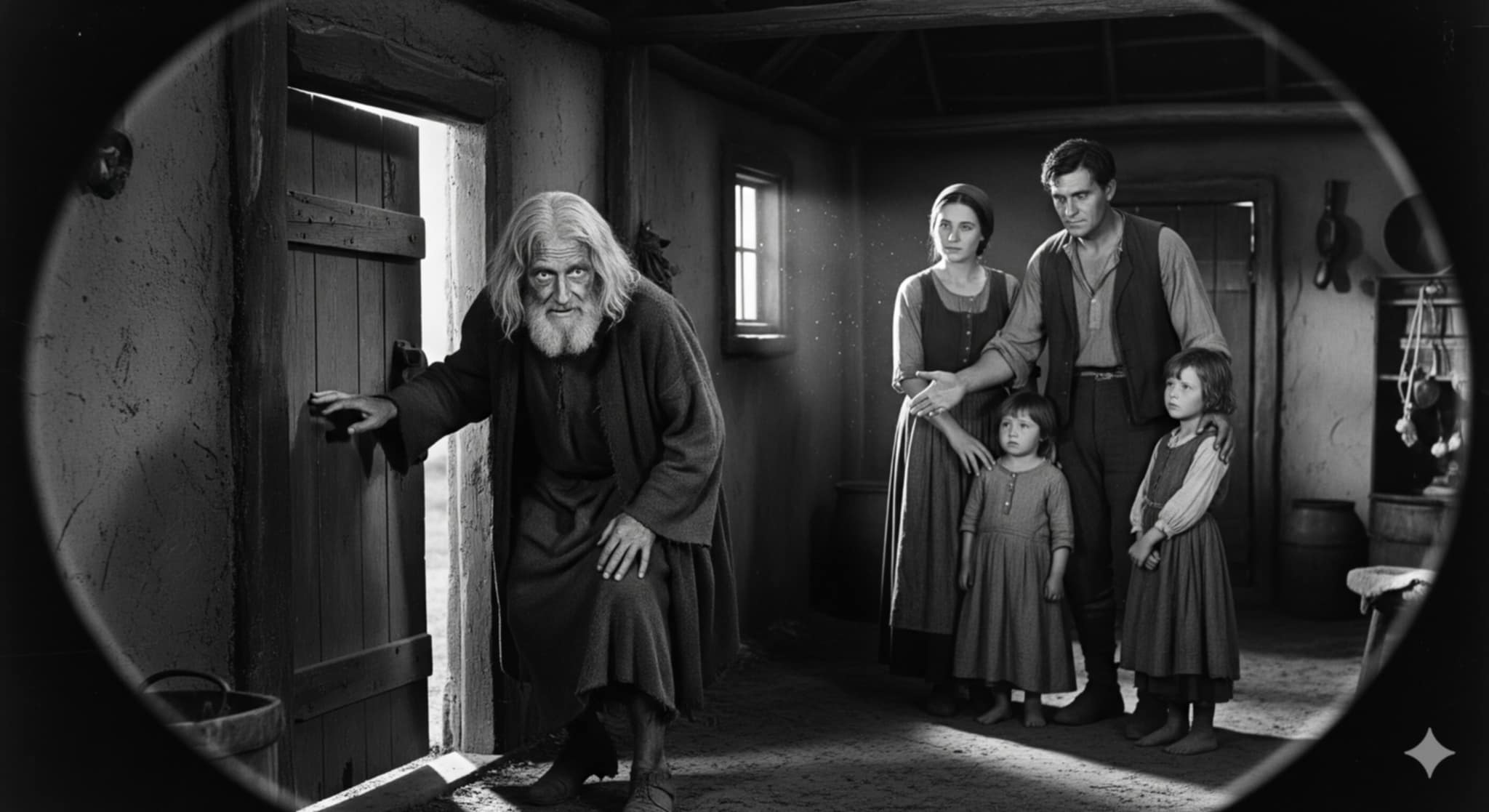Chapter I
THE PROPHECY OF THE WANDERING OLDMAN – about the outbreak of World War II and the Banderite massacre.
Father entered the cottage, pleased with himself, and announced to the family from the doorway.
— Finally, we’ll build a magnificent house. I bought the wood for half price.
— Jaśko! You can’t do that! That’s wood from an orthodox church. It’s a sin. And how will we look our neighbors in the eye? The Ukrainians are wailing over their destroyed orthodox churches. We will be cursed because of this!
— Piss off, woman! I don’t get involved in politics. We’re poor people. There’s an opportunity to buy cheap wood, it would be a sin not to take it.
— The Lord won’t be pleased. Those are houses of God, and the Orthodox are Christians just like us Catholics, they just pray differently and don’t recognize the Pope.
We heard footsteps outside the window. A guest entered, a wandering Oldman. We welcomed the homeless traveler with what the house had to offer, as it was like a visit from Jesus Himself.
Old people used to say that God often walked the paths of the Kresy (Polish-Ukrainian borderland) He usually didn’t walk in His visible Glory (though some saw Him that way), but most often He shuffled along in old rags, as a wandering grandfather.
A wandering Oldman, or „did wołoczebnyj”, is perhaps the lowest person in the social hierarchy. A homeless beggar, going from house to house, asking for a place to stay and a meal, would be met with contempt, a sense of danger, or perhaps pity in today’s world. For the former inhabitants of the Kresy (at least for a significant part of them), it was a form of meeting the living Christ.
Different people understood this differently. For some, it was an evangelical metaphor, according to which Jesus would judge their deeds toward „the least of His brethren” on Judgment Day as if they were done to Him. Others treated it in a more folkloric way, explaining that Jesus personally, incognito, in disguise, descends to Earth to see if people truly follow His words, or if they only honor Him with their lips. A practical test of mercy.
— And how was it, Oldman? Did you eat enough? — asked Mother.
— God bless you. You cook well!
— A guest in the house, God in the house! We must welcome them with what the house has, even though we spent all our money on wood.
— Yes, that’s right. I know that good people live in this area, both Catholics and Orthodox. But even here, the devil is trying to cause trouble. They’re destroying churches! Jaśko, it’s not good that you bought that wood! The Lord sees everything. One day you’ll be burned for it!
— I told him…
— You are a good woman. For the sake of your words, they won’t kill you. Just remember. A man will come to warn you. Take his words seriously.
— Maybe I did wrong, but it’s too late to change it now.
Then the Oldman told us that a war was coming, more cruel than any before. The occupiers would murder many people and pit neighbors against each other, and unfortunately, many of them would listen to the devil. Then he went to sleep by the fireplace. In the morning, we gave him a roll for the road and he went on his way.
After the Oldman left, Mother was deep in thought. Finally, she took the icon from the wall and stared at the image of Christ for a long time.
— Look at those eyes! They’re the same eyes as the Oldman’s! Could it have been Jesus Himself? Maybe we didn’t welcome him well enough. We should have given him sausage!
— Oh, please! Giving sausage to a beggar. But… those eyes actually are the same… well, we did feed the hungry and give the traveler a place to stay. Maybe Jesus isn’t offended.









Zostaw komentarz